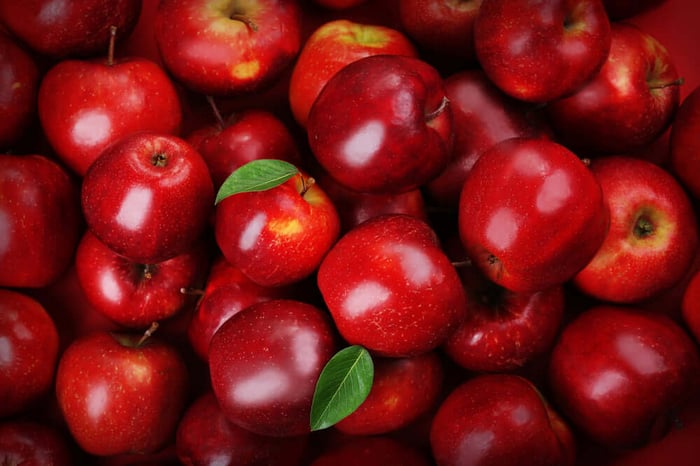Did you know that the average American eats 293.6 eggs each year?
Perhaps the trend stems from the fact that eating two eggs for breakfast every day is a great way to get the nutrients you need. And, there’s so many ways to cook them!
This versatile source of protein can be made into breakfasts, lunches, snacks, and into filling dinner items like fried rice or veggie frittata.
But, before we dive into all that, let's check out some fun facts about eggs.
Fun Facts About Eggs
1. The largest egg ever laid was 9.1 in in diameter and came from a hen in the United Kingdom.
2. Brown eggs aren't necessarily healthier than white eggs, they're just laid by different breeds of hens. The brown egg laying variety of hen is larger and requires more space for its nesting. That cost translates into the prices on store shelves.
3. Chickens are raised more often for eggs than turkeys or ducks since they require less nesting space, and they also don't have the intense mothering instincts of other species, making it easier to retrieve the eggs.
4. Iowa leads the nation in egg production with almost 15 billion laid per year. Ohio is next up with almost 8 billion.
5. Want to know if your egg is hardboiled or raw? Give it a spin! Raw eggs will wobble back and forth as the liquid slushes around inside them, while hardboiled eggs will spin smoothly like a top.
6. The whiter the yoke, the fresher the egg. Cloudy whites are a sign that carbon dioxide has not yet had a chance to escape through the egg's shell. As it begins to escape, the egg whites become clearer.
Health Benefits of Organic Eggs
Everyone knows that eggs are healthy in general, but people may not know exactly how healthy organic eggs can be. Some of the health benefits provided by eggs include:
- They offer a super complete protein, with a single egg having 6 grams of protein that also contains all nine “essential” amino acids, the building blocks of protein. That’s important because those are the ones your body can’t make by itself. For the heart conscious egg consumer who may be trying to avoid the yolk, the egg white holds about half that protein and only a small portion of the fat and cholesterol in comparison to the entire egg.
- They help regulate your cholesterol, and are an easy source for “good” cholesterol in higher amounts than “bad” cholesterol.
- They can potentially lower the risk of stroke. In a recent Chinese study, people who had about one a day were almost 30% less likely to die from hemorrhagic stroke than those who had none.
- They’re jam packed with essential vitamins and minerals. A 2 egg serving contains 82% of your daily vitamin D requirements, 50% of your daily folate requirements, 25% of your daily riboflavin (Vitamin B2) requirements, and decent amounts of vitamin E, vitamin K, vitamin B6, B5, B12, calcium and zinc, making them one of the most nutritious foods on the planet.
- At about 70-77 calories per egg, with their low calorie content and high protein content, eggs are an excellent snack or food item for weight loss as well as for a physically active lifestyle. Additionally, people with prediabetes or type 2 diabetes were just as heart healthy after a high-egg diet designed for weight loss.
- They contain the antioxidants lutein and zeaxanthin, which help keep you from getting eye diseases like cataracts and age-related macular degeneration. Green, leafy vegetables like spinach and kale have them too, but eggs are a better source. That's because the fat they contain makes it easier for your body to process and use the nutrients.
Ways to Eat Organic Eggs
Besides the most popular ways to eat eggs, such as boiled, scrambled, fried, or sunny side up, there are tons of ways you can enjoy your two eggs per day.
Boiled eggs are great additions to cold salads, pasta salads, and the childhood nostalgia bomb that is egg salad sandwiches.
Poached eggs, on the other hand, are amazing if you want to be a little more fancy and have an eggs Benedict for breakfast or over some white rice with a drizzle of soy sauce and scallions for a filling, protein packed snack bowl. You can even add soft boiled eggs to a cup of soup or scramble some eggs into a stir fry or fried rice dish.
Of course, on their own, hard boiled eggs are a quick, easy, and healthy snack that’ll tide you over between meals and are simple to store in the fridge once made.



